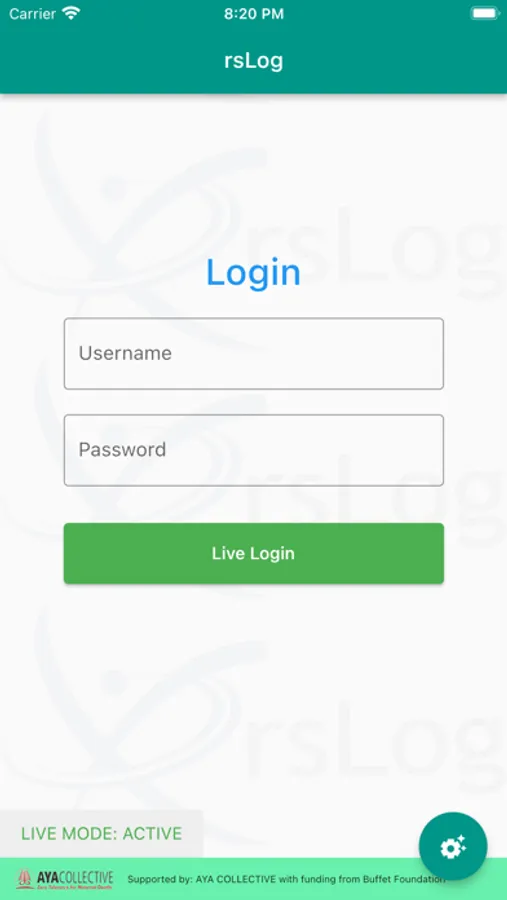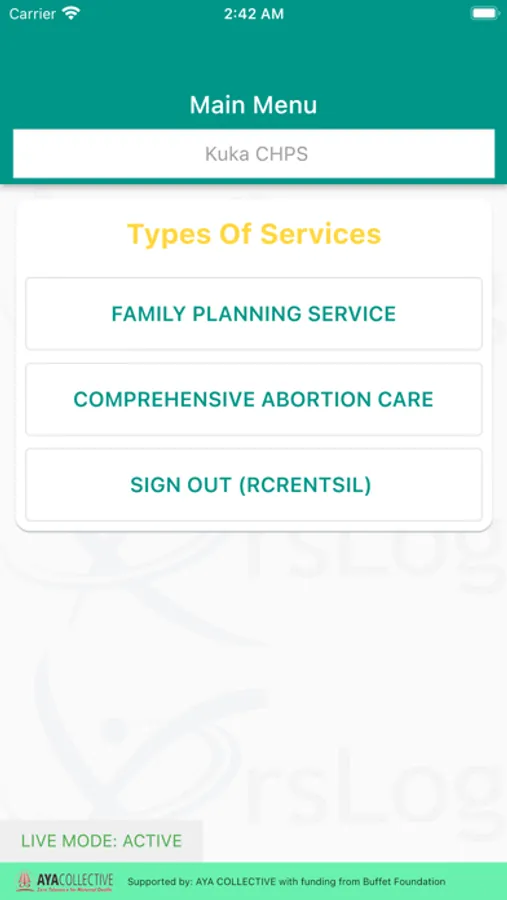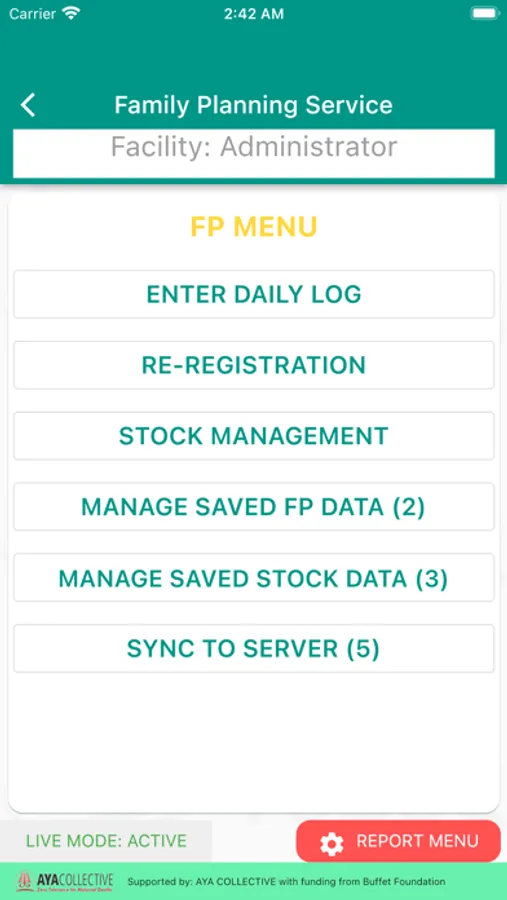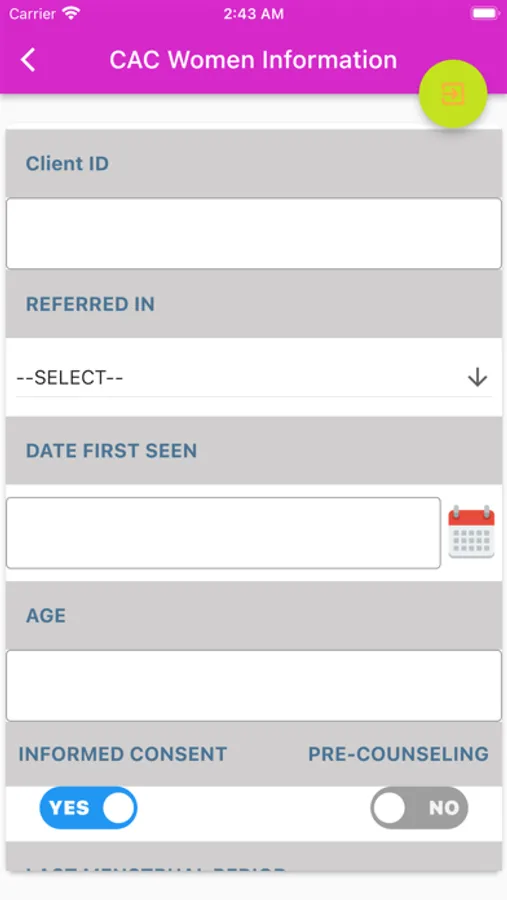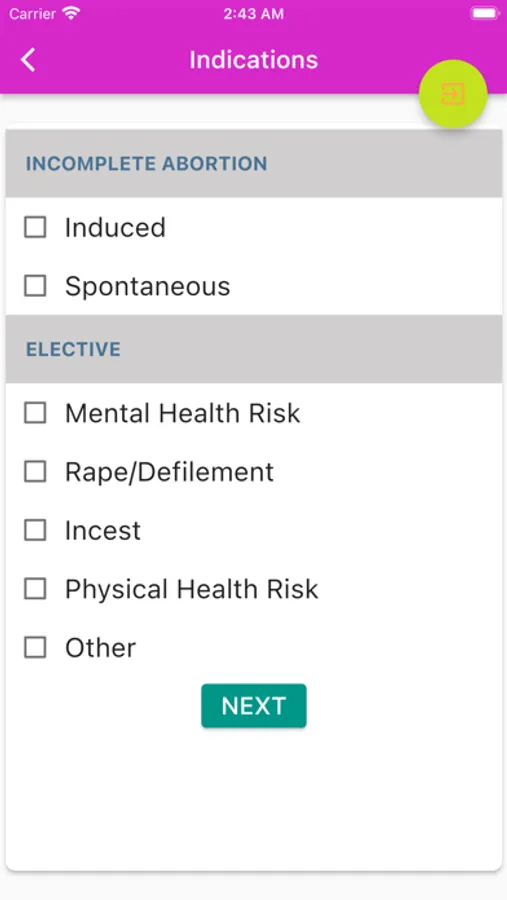About rsLog
The rsLog HMIS system is a healthcare management information system that has been implemented in various countries to improve the quality of healthcare services provided to patients, including family planning and comprehensive abortion care services. The system is developed with support from AYA Collective, a non-governmental organization that specializes in developing technology-based solutions for healthcare providers.
The rsLog HMIS system is designed to collect, manage and analyze healthcare data from various healthcare facilities, including hospitals, clinics, and health centers that provide family planning and comprehensive abortion care services. The system captures patient demographics, medical history, diagnoses, treatments, and outcomes, which is then used to generate reports and analytics. This enables healthcare providers to make informed decisions based on accurate and complete data, ultimately improving the quality of care provided to patients.
One of the key benefits of the rsLog HMIS system is that it enhances data accuracy and completeness. The system captures and stores patient data in a structured and standardized format, which reduces the risk of errors and ensures that important data is not lost. This improves the quality of care that patients receive, as healthcare providers are able to make more informed decisions based on accurate and complete data.
The rsLog HMIS system also facilitates data sharing and collaboration among healthcare providers who offer family planning and comprehensive abortion care services. The system enables healthcare providers to access patient data from other facilities, which is particularly useful for patients who may receive care from multiple providers. This ensures that healthcare providers have a complete picture of a patient's health status and can make informed decisions about their care.
In addition, the rsLog HMIS system supports real-time data reporting and analysis, which enables healthcare providers and administrators to monitor and respond to healthcare trends and outbreaks related to family planning and comprehensive abortion care. This is particularly important in the context of public health emergencies, as it allows healthcare providers to quickly identify and respond to outbreaks and other health threats related to family planning and comprehensive abortion care.
Furthermore, the rsLog HMIS system is designed to be user-friendly and easy to use. This ensures that healthcare providers who offer family planning and comprehensive abortion care services can quickly and easily capture patient data, access patient records, and generate reports without having to spend a lot of time on data entry and management.
Overall, the rsLog HMIS system has been a valuable addition to healthcare systems in various countries offering family planning and comprehensive abortion care services. By improving data accuracy, completeness, and sharing, the system has helped to improve the quality of healthcare services provided to patients in these areas. The system's real-time reporting and analytics capabilities have also enabled healthcare providers and administrators to better monitor and respond to healthcare trends and outbreaks related to family planning and comprehensive abortion care, ultimately improving public health outcomes.
The rsLog HMIS system is designed to collect, manage and analyze healthcare data from various healthcare facilities, including hospitals, clinics, and health centers that provide family planning and comprehensive abortion care services. The system captures patient demographics, medical history, diagnoses, treatments, and outcomes, which is then used to generate reports and analytics. This enables healthcare providers to make informed decisions based on accurate and complete data, ultimately improving the quality of care provided to patients.
One of the key benefits of the rsLog HMIS system is that it enhances data accuracy and completeness. The system captures and stores patient data in a structured and standardized format, which reduces the risk of errors and ensures that important data is not lost. This improves the quality of care that patients receive, as healthcare providers are able to make more informed decisions based on accurate and complete data.
The rsLog HMIS system also facilitates data sharing and collaboration among healthcare providers who offer family planning and comprehensive abortion care services. The system enables healthcare providers to access patient data from other facilities, which is particularly useful for patients who may receive care from multiple providers. This ensures that healthcare providers have a complete picture of a patient's health status and can make informed decisions about their care.
In addition, the rsLog HMIS system supports real-time data reporting and analysis, which enables healthcare providers and administrators to monitor and respond to healthcare trends and outbreaks related to family planning and comprehensive abortion care. This is particularly important in the context of public health emergencies, as it allows healthcare providers to quickly identify and respond to outbreaks and other health threats related to family planning and comprehensive abortion care.
Furthermore, the rsLog HMIS system is designed to be user-friendly and easy to use. This ensures that healthcare providers who offer family planning and comprehensive abortion care services can quickly and easily capture patient data, access patient records, and generate reports without having to spend a lot of time on data entry and management.
Overall, the rsLog HMIS system has been a valuable addition to healthcare systems in various countries offering family planning and comprehensive abortion care services. By improving data accuracy, completeness, and sharing, the system has helped to improve the quality of healthcare services provided to patients in these areas. The system's real-time reporting and analytics capabilities have also enabled healthcare providers and administrators to better monitor and respond to healthcare trends and outbreaks related to family planning and comprehensive abortion care, ultimately improving public health outcomes.
